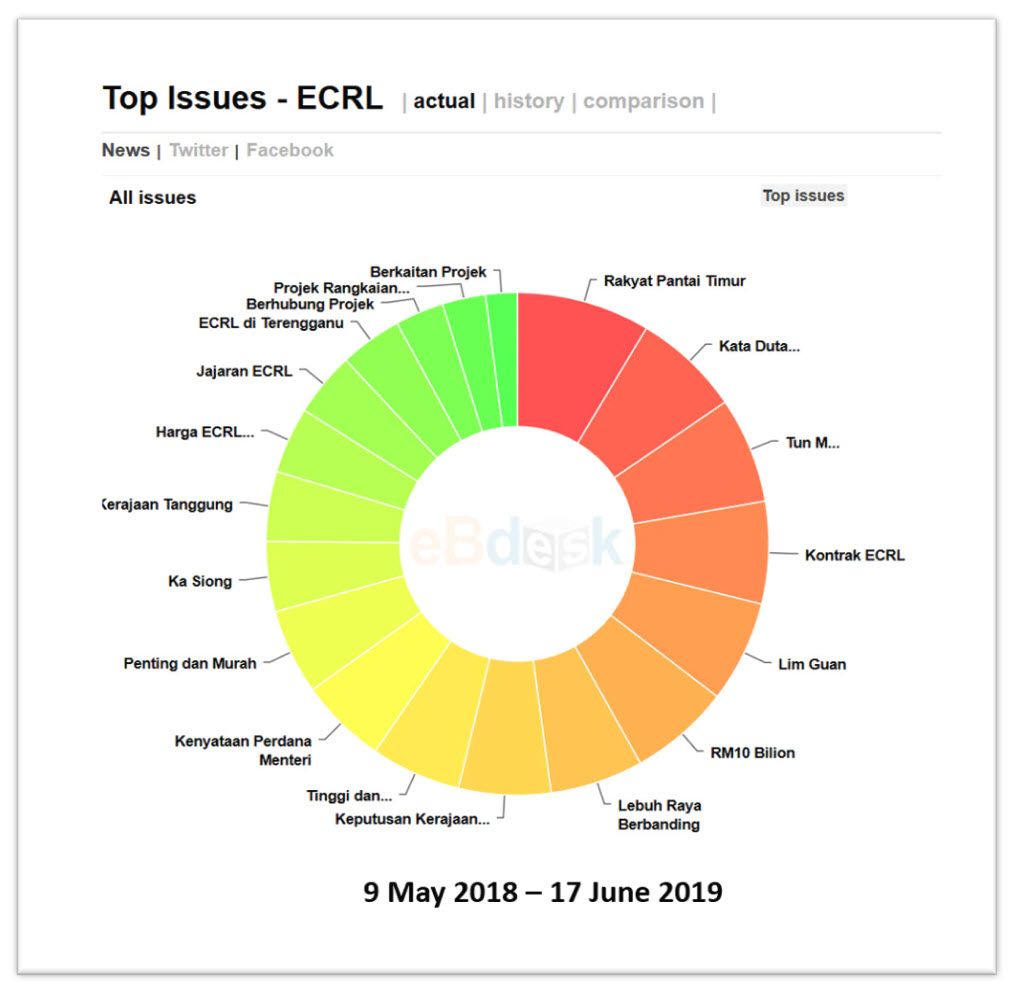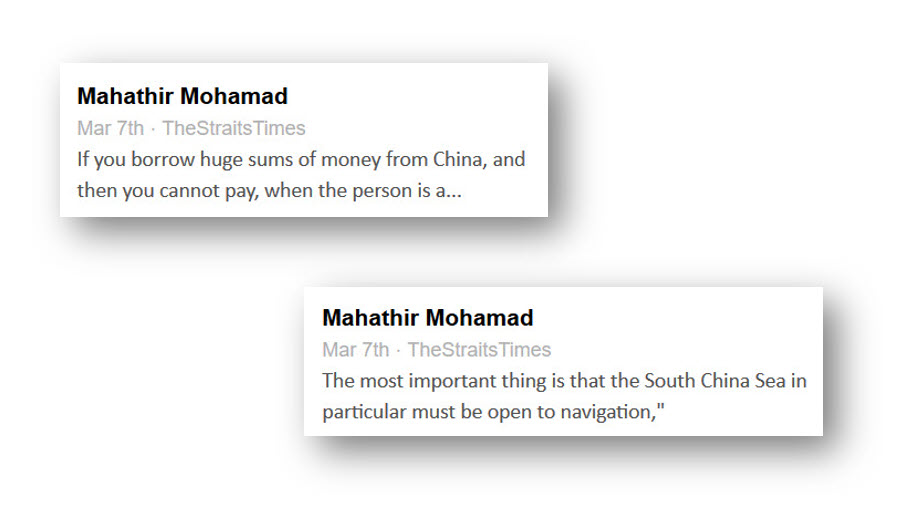Malaysia’s negotiation power with China

China’s Belt and Road Initiative (BRI) was often criticized by the media for being a debt-trap diplomacy.
The most notable example was the story of how Sri Lanka lost its Magampura Mahinda Rajapaksa Port to China.
The story goes like this; China funded the port development by paying 85% of the USD361 million project cost. But the firms hired for the port development were China Harbour Engineering Company and Sinohydro Corporation. Both companies are owned by the China government.
On the other hand, Sri Lanka was able to hasten its development. It seemed like a fair deal as it was beneficial for both countries.
However, the phrase “there ain’t no such thing as a free lunch” applied to the deal. Sri Lanka must service its debt to China by paying an annual interest rate of 6.3%.
With the high interest rate, Sri Lanka was unable to service its debt. Therefore, the country had no other option but to lease the port to China for 99 years, starting from 2017.
As the BRI is a global development strategy, numerous countries were offered development finance by China. Under the premiership of Najib Razak, Malaysia signed several investment deals with China, notably the East Coast Rail Link project which was reported to cost RM65.5 billion.
But after the GE-14, Pakatan Harapan took over the government. In their manifesto running-up to the general election, the coalition promised to review mega-projects in Malaysia.
Nonetheless, it was not a smooth sailing. The government swung back and forth on the status of the ECRL project.

In April 2019, Tun Daim Zainuddin went to China and renegotiated the ECRL deal, the project cost was brought down by RM21.5 billion. Currently, the cost for ECRL was at RM44 billion, but its length was cut by 40km and two stations were removed.
It was a gutsy move by Malaysia to renegotiate the deal and the outcome was successful. A month prior to the renegotiation (March 2019), Prime Minister Tun Dr Mahathir Mohamad warned Philippines president Rodrigo Duterte on China’s ‘debt trap’.

One of the main reasons that Malaysia was daring when confronting with China is because of its geopolitical advantage.

Malaysia owns the Straits of Malacca. It is a crucial sea route for traders to navigate around Asia. Being a part of the Sea Lines of Communication (SLOC), the narrow Straits of Malacca facilitates nearly 85 percent of the Chinese oil import route.
In addition to being an oil import route, the SLOC is also the lifeline to seaborne commerce – the most cost-effective type of shipping for trade.
China may have secured Colombo under its belt, thus successfully safeguarding one of the maritime chokepoints along the SLOC. But if Malaysia were to blockade any shipping from China through its Straits of Malacca route, China will be on the losing end as such blockade could leave a huge impact on China’s trade export activities and hurt its domestic economy.

Alternatively, China could weave their way from the Straits of Malacca through the Indonesian islands. But going through open seas like the Java sea, the Andaman, and the Indian Ocean, the shipments are prone to get attacked by pirates and terrorists as those territories are less secured and not that heavily patrolled like the Straits of Malacca.
Geography and feasibility wise, the alternative routes post a higher risk since there are active volcanoes surrounding the Sunda strait like the Anak Krakatau, making the western parts of Sumatra prone to earthquakes and tsunami.
Moreover, the alternative routes are much longer than the Malacca straits and there is lesser infrastructure on the outer side of the Sumatra island to handle cargo ships or tankers.
In summary, it is not economically viable for China to explore for a new route, leaving China back to Malaysia as its best option.
Malaysia is located at a crucial point of the BRI map. Thus, it is better for China to agree with Malaysia’s demands (if not too ridiculous). Furthermore, China is having a trade war with the United States. Hence, it is a better move for China to make more friends than enemies, particularly in Asia.

